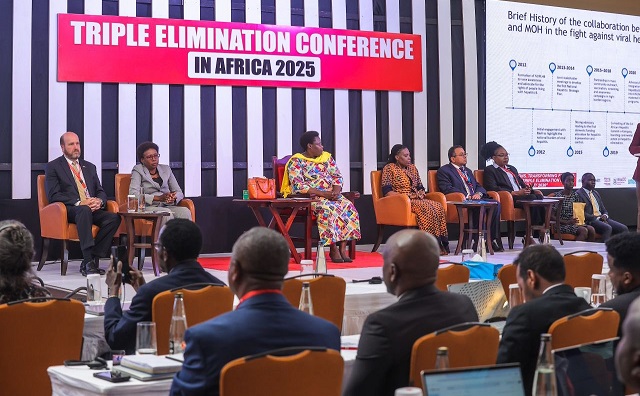Health experts, policymakers, and researchers from across Africa opened a three-day high‑level meeting in Kampala, Uganda to accelerate the elimination of mother‑to‑child transmission (MTCT) of HIV, syphilis, and hepatitis B by 2030. Held under the theme “Unifying Actions, Transforming Futures,” the summit is the continent’s first coordinated push to confront all three infections together within maternal, newborn, and child health services.
Vice President Jessica Alupo, speaking on behalf of President Yoweri Museveni, called for unity, innovation, and careful use of limited resources as global health priorities shift and donor support tightens. Uganda’s Health Minister Dr. Ruth Aceng underscored the stakes: by the end of 2024 Africa was home to an estimated 26.3 million people living with HIV about 65% of the global total. Syphilis is surging worldwide, with roughly 8 million adult infections, 700,000 congenital cases, and 230,000 deaths each year.
Hepatitis B compounds the threat. Some 65 million people across Africa are chronically infected, and the continent accounts for an estimated 63% of the world’s new hepatitis B infections annually. Missed antenatal screening, delayed or absent birth‑dose vaccination, and weak postnatal follow‑up continue to expose infants.
Although HIV MTCT prevention has expanded in many countries, comparable pathways for syphilis and hepatitis B lag behind. Only Botswana and Namibia are currently considered on track toward triple elimination evidence of the implementation gap facing the region. Delegates are reviewing integrated “one‑stop” models that bundle testing, treatment, vaccination, and data capture within routine antenatal and child health visits to stretch constrained budgets.
Priority actions on the agenda include universal early antenatal testing; rapid point‑of‑care diagnostics; hepatitis B birth‑dose and catch‑up vaccination; streamlined linkage to antiretroviral, antibiotic, and antiviral regimens; postnatal infant virologic monitoring; digital registries to harmonize data across programs; strengthened community health worker networks; male partner engagement; and sustainable domestic financing. The meeting aligns with the World Health Organization’s 2030 targets and the African Union’s Agenda 2063 drive for resilient health systems.
Participants plan to issue a roadmap with interim milestones, peer‑review scorecards, and advocacy commitments. Achieving triple elimination would safeguard mothers, protect newborns, and reduce long‑term health costs across generations.

